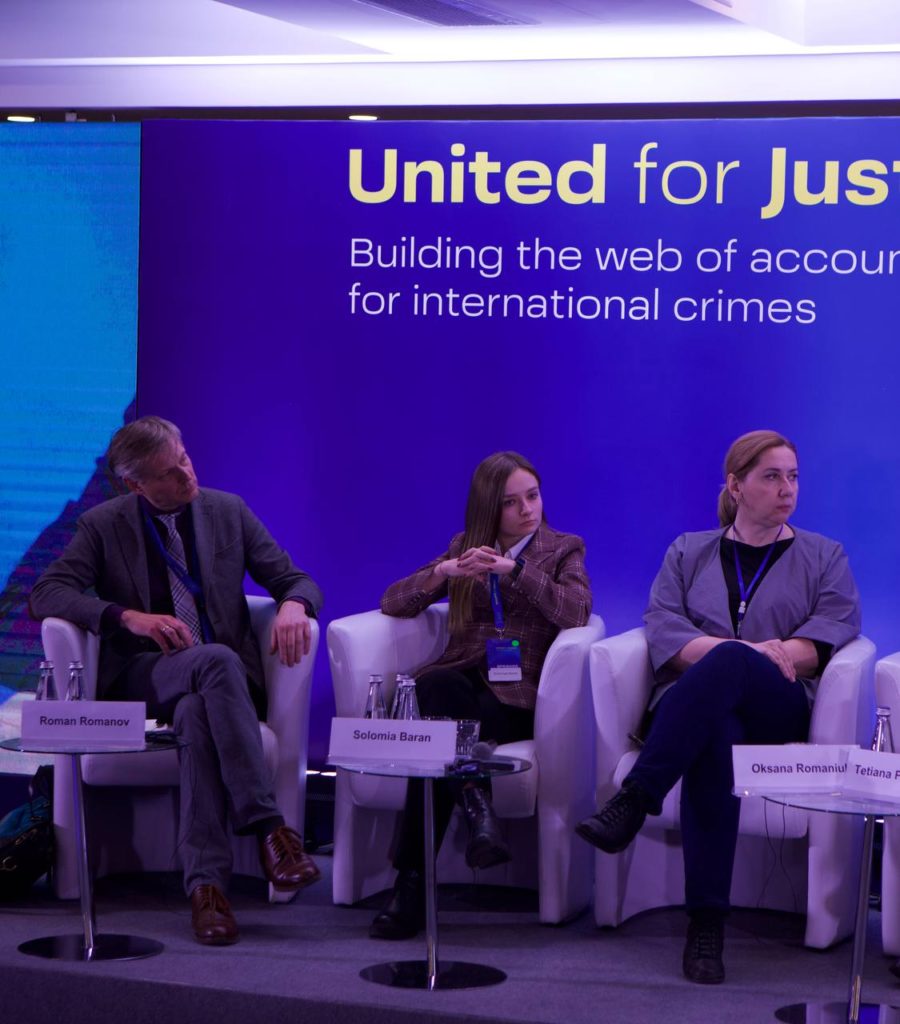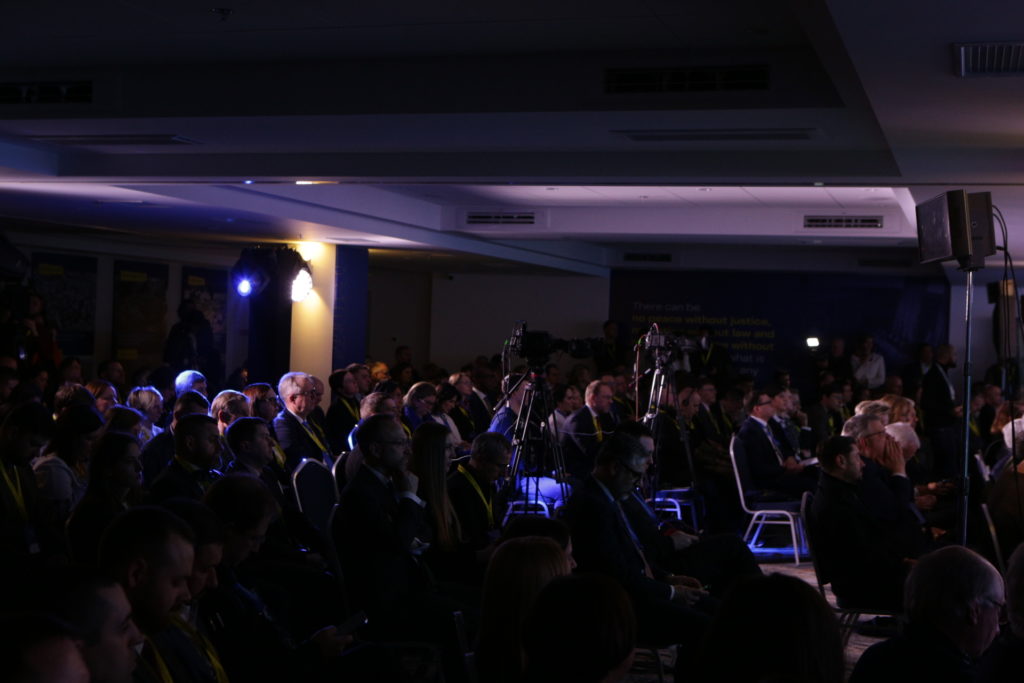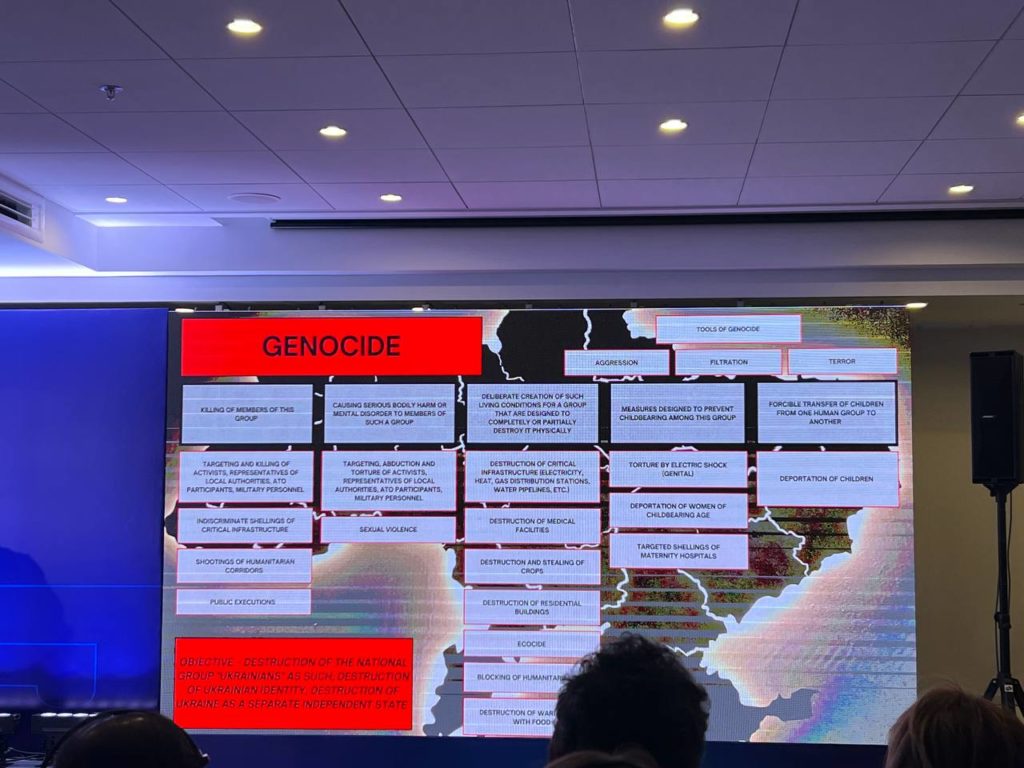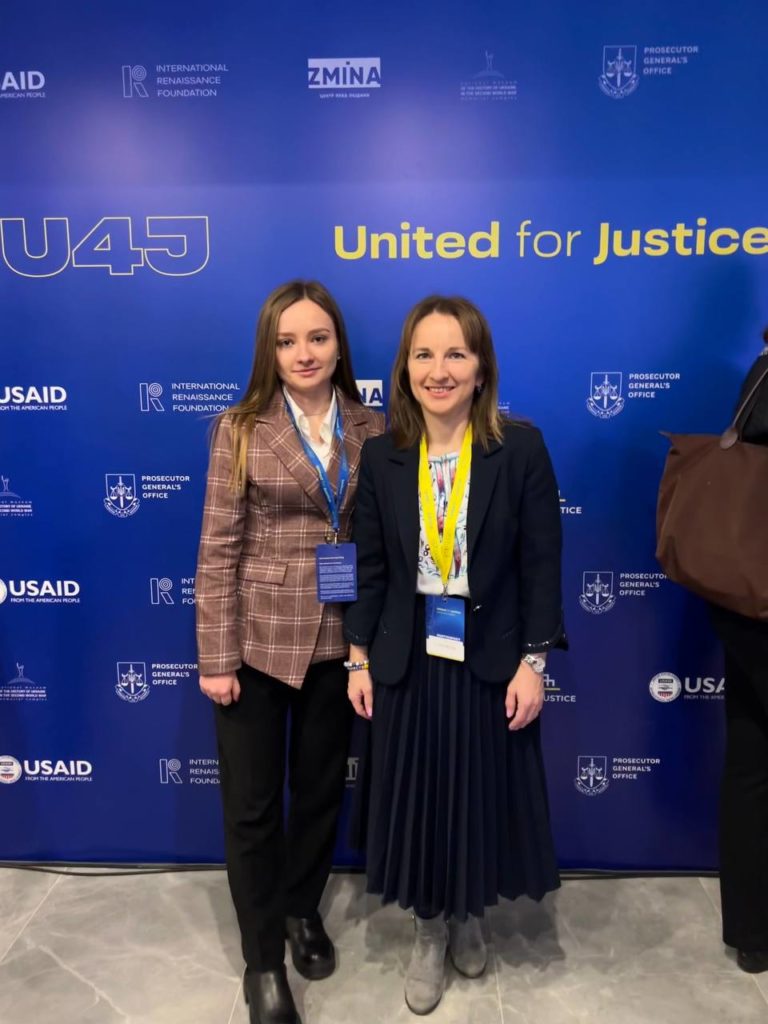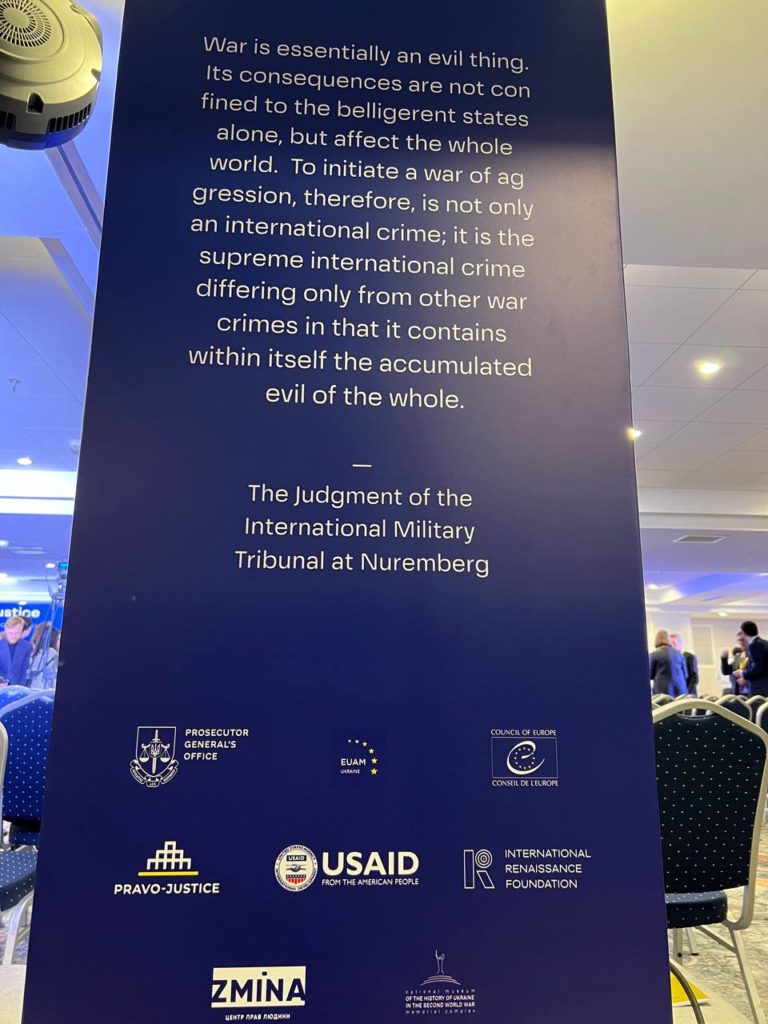From March 3rd to March 5th, the “United for Justice” conference took place in Lviv, the city that gave the world two well-known lawyers who laid the foundations of international humanitarian law1. The conference aimed to unite Ukraine and its international partners to hold russia accountable for its crimes and become a global platform for developing comprehensive mechanisms of accountability for international crimes.
Ukrainian President Volodymyr Zelensky opened the conference, and the event was also attended by Latvian President Egils Levits, Deputy Prime Minister of the Netherlands and Minister of Foreign Affairs Wopke Hoekstra, U.S. Attorney General Merrick Garland, U.S. Ambassador-at-Large for Global Criminal Justice Beth van Schaack, European Commissioner for Justice Didier Reynders, International Criminal Court Prosecutor Karim Khan, Head of the European Public Prosecutor’s Office Laura Codruța Kövesi, Attorney General of Spain Dolores Delgado, Attorney General for England and Wales Victoria Prentis, Attorney General of Estonia Andres Parmas, Attorney General of Latvia Juris Stukāns, Attorney General of Lithuania Nida Grunskienė, and Director for Human Rights and Rule of Law of the Council of Europe Christos Giakoumopoulos. European Commission President Ursula von der Leyen greeted the conference participants online.
Representatives of the NGO “Environment-people-law“, the head of the legal department Olga Melen-Zabramna and legal counsel Solomiia Baran also had the opportunity to participate and contribute to the discussions at the event. The conference was also known as the “legal Ramstein”.
During the conference, the following points were particularly important:
The United States has joined the Joint Investigation Team (JIT) to investigate war crimes. JIT was created in March 2022 by countries such as Ukraine, Lithuania, and Poland. Later, Estonia, Latvia, and Slovakia also joined JIT. The inclusion of the United States will significantly strengthen the joint investigative group.
The chief prosecutors of the member countries of the Joint Investigation Team (JIT) have signed an appendix to the Agreement on the creation of JIT to begin work based at Eurojust’s International Center for Aggression Crime Investigation in The Hague. The establishment of the International Center for the Prosecution of Aggression Crimes was initiated by the Office of the Prosecutor General with the support of Eurojust, the International Criminal Court, and in partnership with Lithuania, Poland, Latvia, Estonia, Slovakia, and Romania.
An office of the International Criminal Court (ICC) will be opened in Ukraine. All participants unequivocally recognize that Ukraine is currently a place of crime. The opening of the ICC office in Ukraine may indicate an increase and intensification of its work.
A Dialogue Group has been created to coordinate national and international efforts to hold russia accountable for the crimes committed and continuing to be committed in Ukraine.
The organization of a system for collecting and recording evidence regarding russian crimes in Ukraine has been discussed. International Center for Investigating Aggression Crimes Against Ukraine will be established by the summer for this purpose.
The further steps for the criminal prosecution of the genocide of the Ukrainian people have been highlighted. One of the many elements of the genocide that has been recognized is ecocide.
The question of the model for establishing a Special Tribunal for the crime of aggression was actively discussed, whether it should be ad hoc or hybrid. Ukraine has expressed the position that there is a need for an ad hoc tribunal, which would be based on an international multilateral agreement. The actions of Belarus should also be considered in this tribunal, along with the crimes committed by russia.
All participants expressed their support for the creation of a Compensation Committee, which will finance reparations for the victims of this war and the reconstruction of Ukraine. To assist in obtaining reparations, an International Damage Register will be created. The frozen russian assets in various countries are intended to be the financial basis for reparations.
Russians will definitely have to pay, there is no doubt about it among national lawyers who are assisting the Ministry of Foreign Affairs and the Ministry of Justice, as well as international partners, in creating the necessary legal framework for the seizure of these assets to fill the Compensation Fund. The United States and Great Britain have already passed corresponding laws allowing such funds to be used for the reconstruction of Ukraine.
The US Attorney General has sanctioned the first transfer of “frozen” russian assets to the US Department of State for the purpose of directing them towards the reconstruction of Ukraine.
A separate session at the conference was conducted by representatives of civil society who outlined their role in investigations and evidence collection among the civilian population regarding the crimes committed by the aggressor. The Prosecutor General’s Office is currently investigating about 70,000 crimes committed since the beginning of the aggression, and this number will continue to grow. In this part, the representatives of the EPL highlighted their own position on improving the legal regulation of the crime of ecocide both nationally and internationally. They were able to share their own experience in data collection and the problems our experts face in collecting evidence of the negative impact of military operations on the environment.
The topic of ensuring proper prosecution and justice for sexual violence, crimes against children, forced deportations, and resettlement was subjected to detailed discussion. It is important that the Head of the EU Prosecutor’s Office, Laura Kovesi, has acknowledged the world community’s understanding of the mass removal of Ukrainian children to Russian territory as deportation.
The last panel discussion on the third day was about crimes against the environment, mechanisms for compensating for the damage caused to the Ukrainian environment, and the need to implement the crime of “ecocide” in the international legal system.
It is gratifying to know that despite all the difficulties and circumstances of the state of war, Ukraine has reliable partners who are ready not only to discuss possible solutions but also to take necessary actions. The democratic world has clearly expressed its position of support for Ukraine as long as it is necessary. Therefore, the civilized world unites in a clear understanding that such expected peace is impossible without the establishment of justice and accountability for the guilty parties: the state itself, war criminals, and collaborators. This unity instills hope for inevitable punishment for those who are currently destroying our state.
It is also important to note the titanic efforts of the Office of the Prosecutor General, which managed to organize an event of truly high level and ensure the participation of partners of such a high professional level and level of support for Ukraine during such a difficult time.
So let’s stay #UnitedForJustice!
1 The concepts of genocide and crimes against humanity were formed by lawyers from Lviv: G. Lauterpacht and R. Lemkin.

